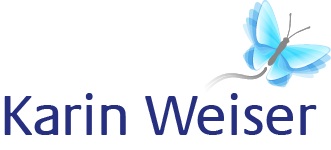How coaching can contribute to a successful onboarding programme
Starting a new job is a rollercoaster of emotions. Excitement, pride, nerves and a massive information overload as the employee desperately tries to remember names, abbreviations and get to grip with the company jargon. They have to wrap their head around new tasks, the company culture and scramble to get up to speed as quickly as possible.
Eager to prove it was the right decision to hire them and eager to reassure they made the right decision to sign the contract. The stakes are higher and challenges greater, if their new role also goes hand in hand with settling into a new country, city or culture. In short, it can be a stressful time!
What needs to happen beyond the welcome flowers and breakfast to support a new employee navigate the new bumpy road and learn the ropes within the new team and company?
The answer is in a successful onboarding programme which supports them above and beyond the transition phase and minimizes the stress.
Onboarding as a continuation of the hiring process
For any employer, the early days of bringing in a new employee in a new job is a vulnerable time. It comes with a huge risk as well as huge potential. Employers who treat onboarding as a continuation of the hiring process are more likely to retain employees.
Onboarding, the process of integrating a new employee into an organization, is truly relational and should be human in nature. At the end of the day, onboarding is about belonging and satisfying Maslow’s basic needs. A good onboarding programme can lead to a multitude of benefits and lead to a happy productive, engaged and motivated employee.
What makes people quit?
Sometimes things go wrong, and employees quit before they have added value. This is costly for the company and may even affect moral within the remaining team members.
According to the BambooHR report, some reasons new employees quit include the feeling of being neglected, overwhelmed, under-appreciated, and underqualified. These feelings stem from a multitude of other reasons which might include:
- Employee misfit with the company
- Lack of guidance and availability from the manager
- Ignoring diverse needs
- A “do-it-yourself” mentality, where no one assumes responsibility for onboarding
- Information overload at a fast pace
What makes people stay?
Clear responsibilities, processes and expectations for their job, will set your new employee up for success. An onboarding programme that extends beyond the first week and includes on-the-job training. An onboarding programme with a human experience will allow the new employee to be seen and heard, recognized and included. A new employee needs to feel safe before they can show vulnerability, share personal challenges or concerns and really be themselves.
This human experience could include a buddy or mentor. And a coach.
Conversations that matter add to the human experience
Career transitions bring challenges. Coaching can support career transition challenges with conversations that matter. Coaching is a human experience that nurtures people and relationships. It helps people see and think through their challenges. Coaching is a helpful tool to tidy the mind and think out loud. And offers an opportunity to explore limiting beliefs and expand choices, often increasing self-awareness and self-confidence. In a safe space with no judgement.
Coaching conversations are an engagement tool too. They drive loyalty and retention and keep your (star) talents motivated and learning.
Wellbeing in the workplace is a hot topic
The UN Sustainable Development Goal (SDG) goal 3 aims to ensure healthy lives and promote wellbeing for all at all ages. This includes mental health. We all have mental health and there is no health without mental health. A good barometer for the quality of our mental health is shown by how we feel, think and behave. It’s also a measure of:
- How we cope with the ups and downs of everyday life.
- How we feel about ourselves and our life.
- How we deal with negative things and our future.
- Our self-esteem or confidence.
- How stress affects us.
A new job is stressful!
But it doesn’t have to be a solo journey. Employers who treat onboarding as a continuation of the hiring process are more likely to retain new employees. And with coaching as part of the onboarding process, turn them into happy, motivated and engaged employees.
What’s not to like?
Photo by Christina @ wocintechchat.com on Unsplash
